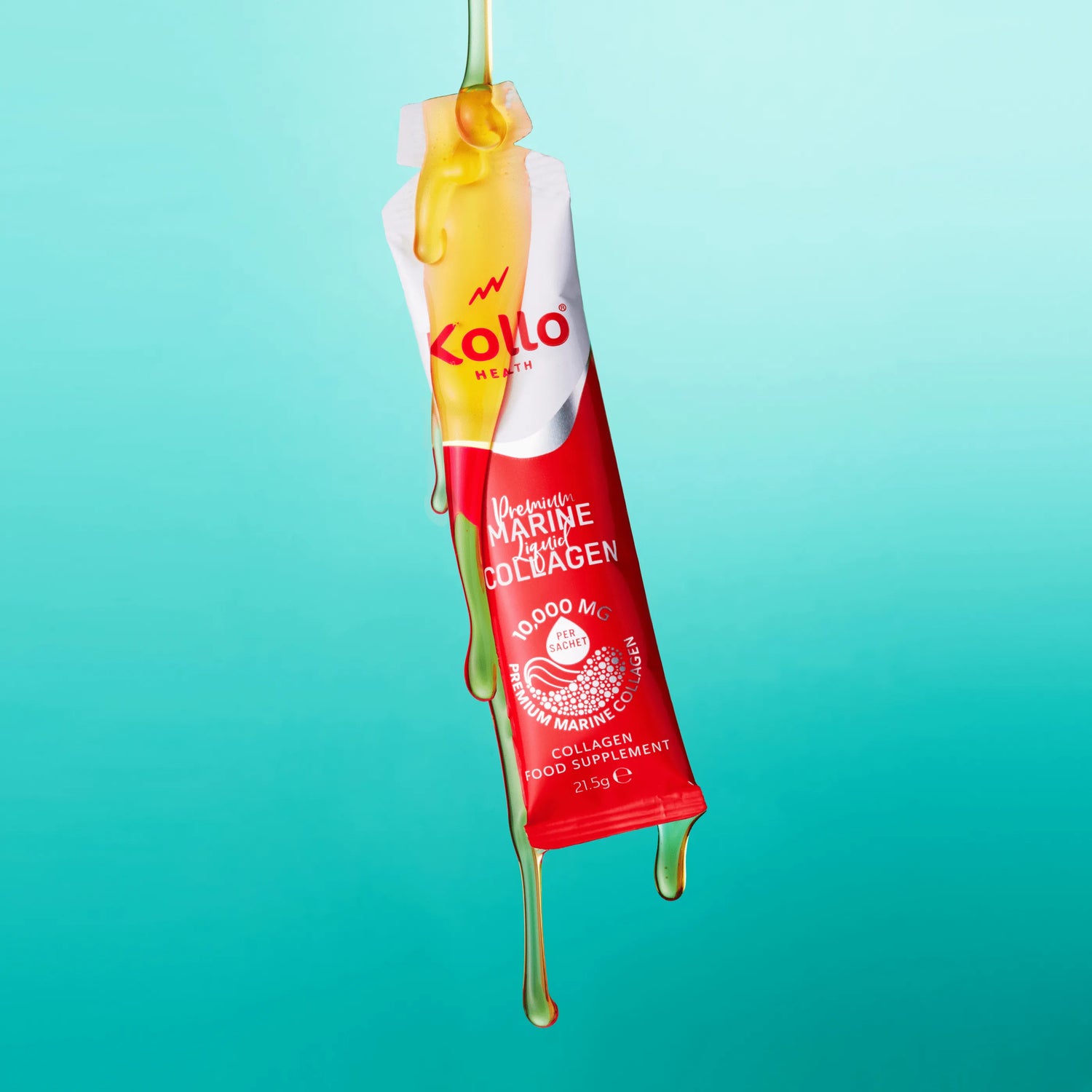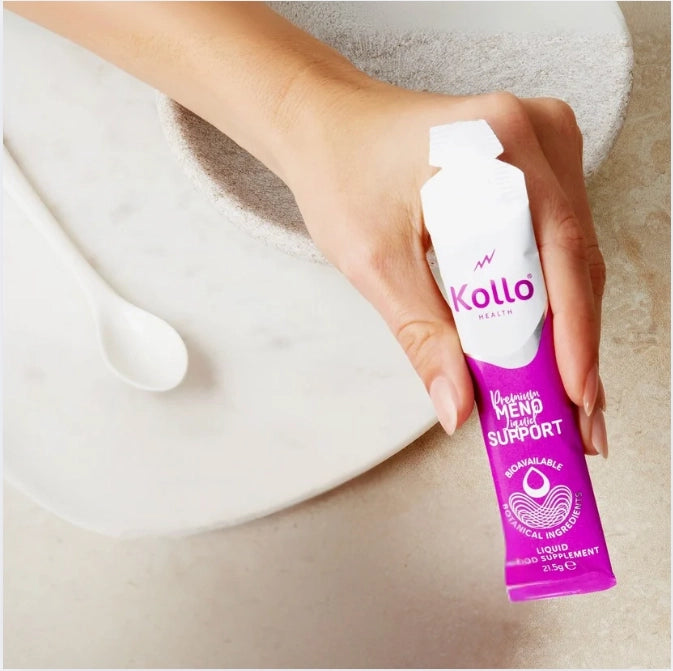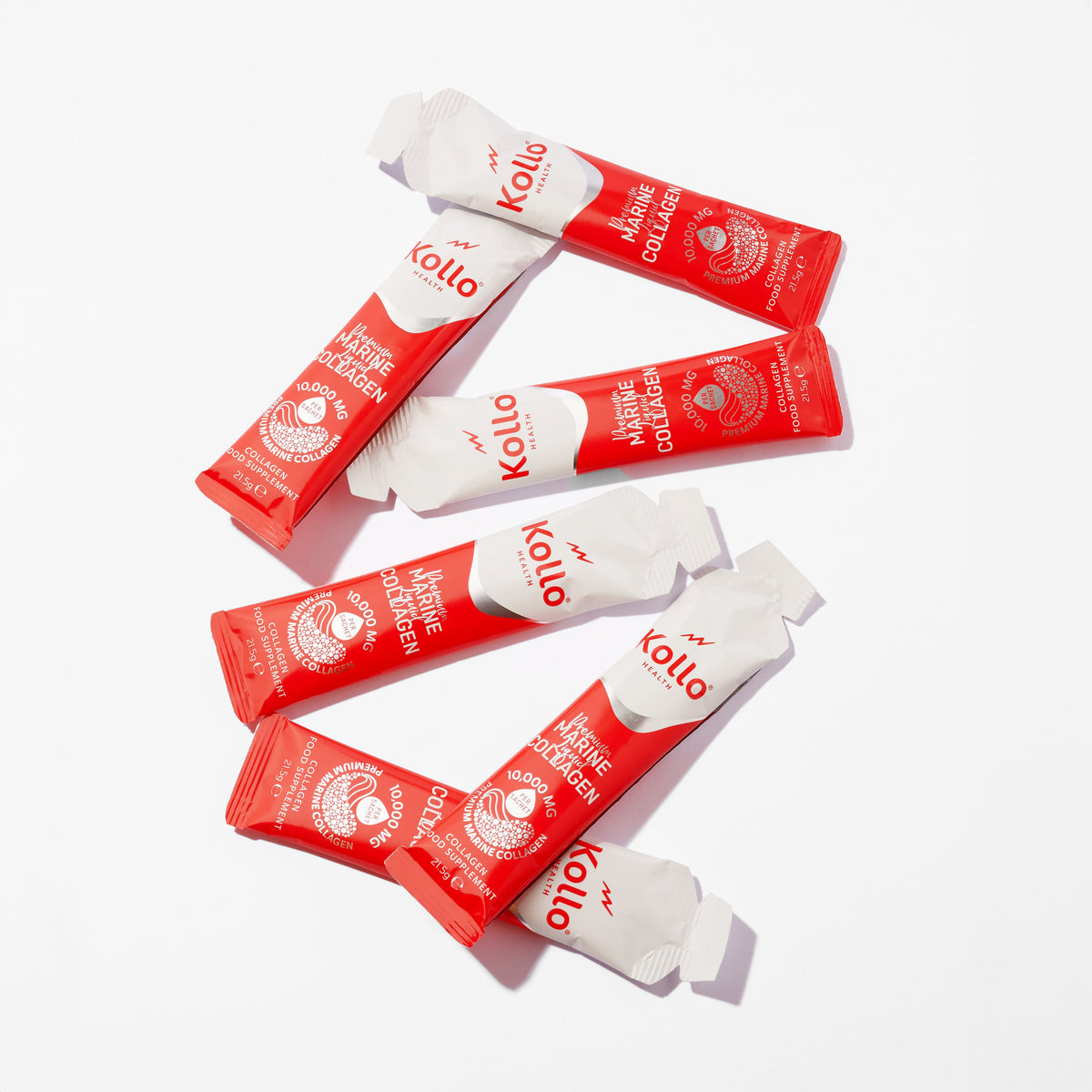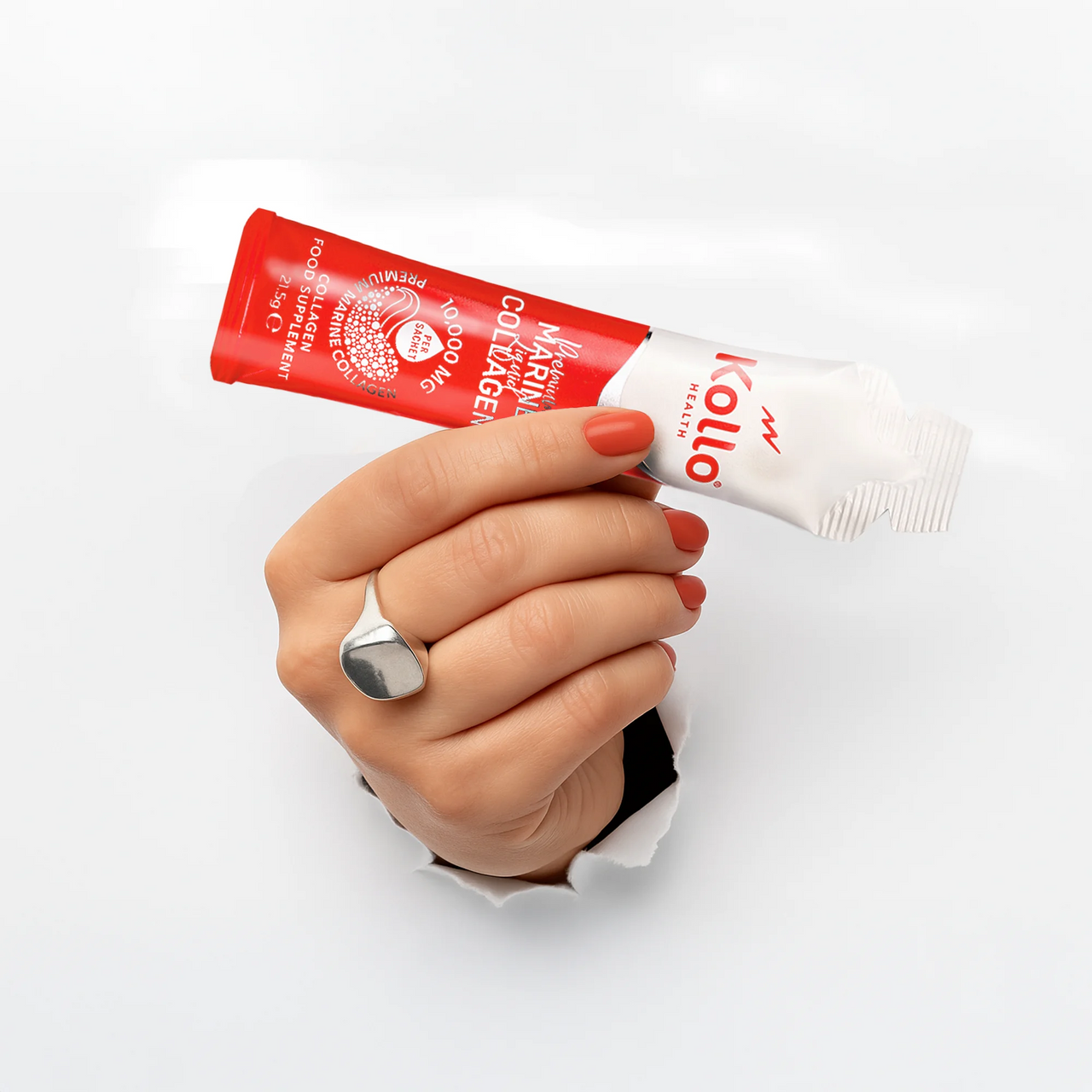Introduction
Collagen is the most abundant protein in the human body, forming the structural framework for skin, joints, muscles, tendons, and even blood vessels. From the age of 25, natural collagen production begins to decline at a rate of approximately 1–1.5% per year. This gradual reduction is a key contributor to visible signs of ageing, joint stiffness, and slower recovery from exercise or injury. Supporting collagen levels from this stage of life can help maintain vitality, resilience, and long-term health.
What Is Collagen?
Collagen is a fibrous protein made primarily from amino acids such as glycine, proline, and hydroxyproline. It acts as a scaffold for connective tissues and contributes to:
-
Skin elasticity and hydration
-
Joint lubrication and mobility
-
Bone strength and structure
-
Muscle repair and performance
There are more than 20 types of collagen, but Type I collagen (used in Kollo) makes up over 90% of the collagen in the human body.
Why Collagen Declines After 25
From early adulthood, fibroblast activity – the cells that produce collagen – starts to slow down. Several factors accelerate this decline:
-
Sun exposure (UV radiation breaks down collagen fibres)
-
Hormonal changes (especially reduced oestrogen in women)
-
Environmental stressors (pollution, smoking, poor nutrition)
-
Natural ageing processes
This reduction not only affects the skin but also the musculoskeletal system, leading to more noticeable joint discomfort, reduced skin firmness, and slower recovery from daily wear and tear.
The Evidence for Supplementation
Clinical research shows that hydrolysed collagen peptides are well absorbed by the digestive system and delivered to target tissues. In studies, collagen supplementation has been shown to:
-
Improve skin elasticity and hydration within 8–12 weeks
-
Reduce the appearance of fine lines and wrinkles
-
Support joint health, reducing discomfort in active and ageing populations
-
Aid recovery following exercise by supporting connective tissue repair
Why Kollo’s Collagen Is Different
Kollo Health uses 10,000mg of Naticol® marine collagen peptides per daily sachet, combined with Vitamin C (which is essential for normal collagen formation). Naticol® has been clinically studied for its bioavailability and effectiveness.
Liquid delivery ensures rapid absorption compared with tablets or capsules, and each sachet is easy to take at home, at work, or after exercise.
How to Take Kollo Collagen
-
One sachet daily mixed with water, juice, or a smoothie
-
Consistency is key – daily use helps maintain circulating collagen peptides in the bloodstream
-
Best taken with food for optimal absorption
Conclusion
Starting collagen supplementation from 25 onwards is a proactive way to support your skin, joints, and overall vitality. By choosing a high-quality, clinically studied marine collagen like Kollo, you can invest in your long-term health while addressing the earliest signs of collagen decline.







